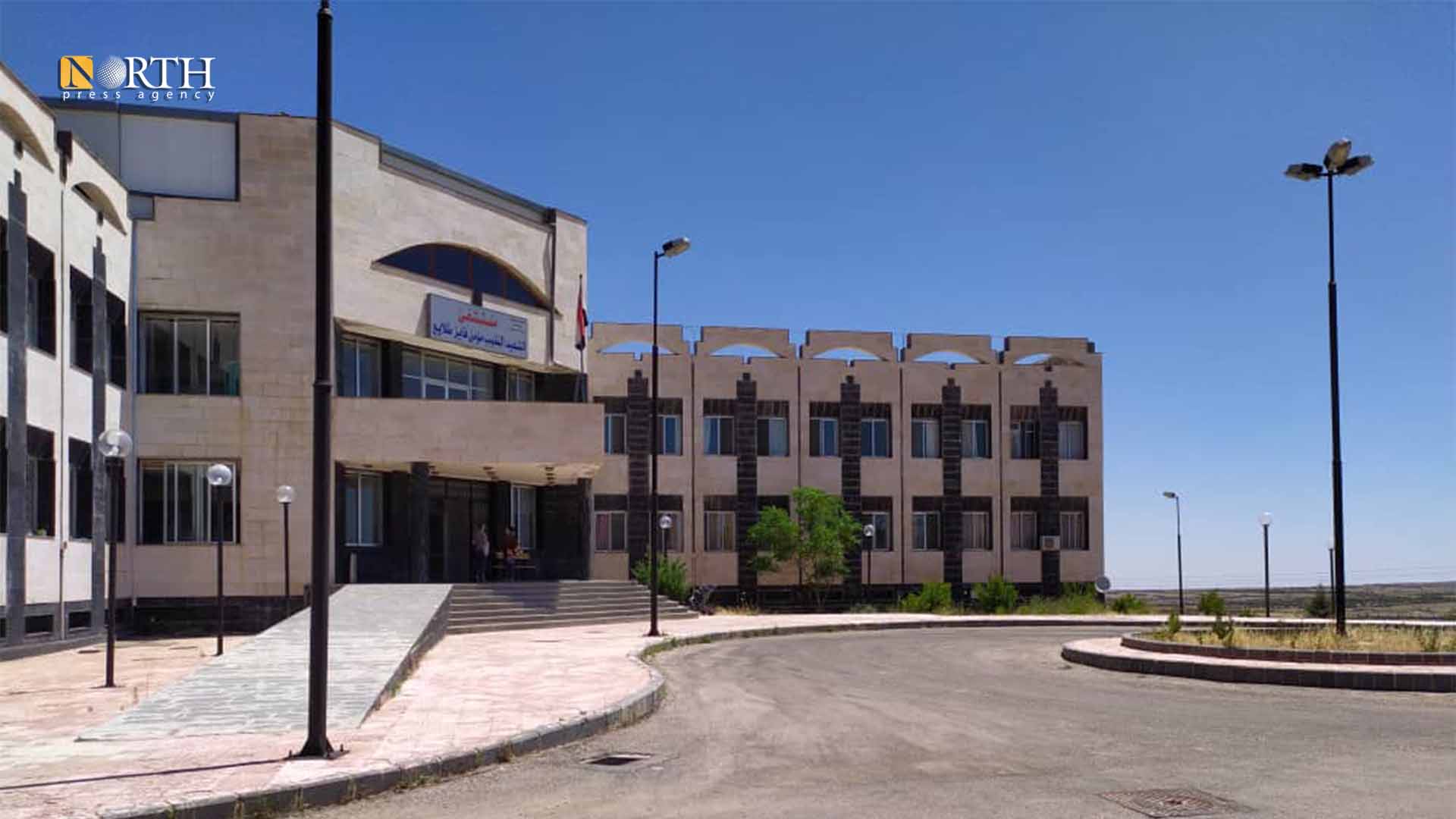
SUWAYDA, Syria (North Press) – The health sector in Suwayda Governorate, southern Syria, is deteriorating amid shortages and losses of medicine inside government hospitals, in addition to a shortage of specialists and medical equipment.
Suwayda governorate is home to four government hospitals: Zaid al-Shariti Hospital in the city of Suwayda, Shahba Hospital, al-Basil Hospital in Salkhad, and Moamen Talaea’ Hospital in the town of Salli in the eastern countryside of the city.
Hospitals without medicine
A doctor working at Zaid al-Shariti Government Hospital in the city of Suwayda who asked not to be named said that the acute shortage of emergency medicine and materials such as cotton, gauze, medical iodine, and some anti-inflammatory drugs inside the hospital has become a threat to the health of patients and emergency cases.
The doctor pointed out that some medicines for vascular and blood diseases were available last year in medical warehouses, but the quantities needed even for ambulances are not available now.
The doctor explained that the private sector stopped offering a list of medicines for purchase at the end of 2020, and the Syrian Ministry of Health stopped supplying medical warehouses with basic drug lists for various chronic and communicable diseases.
The reason for this is the large financial deficit of the government’s Ministry of Health and the suspension of pharmaceutical imports due to the existing economic blockade and thefts of medical shipments, the doctor added.
Zaid al-Shariti Government Hospital includes 331 beds and is split into ten medical departments, but it cannot cover all medical cases coming to the hospital.
The hospital is unable to absorb 75% of incoming cases, as it barely covers a quarter of the patients of Suwayda and with few medical services due to the lack of specialized medical staff and equipment, according to the doctor.
Workers in the health sector in Suwayda governorate say that many doctors and many nurses have emigrated due to the decline in the standard of living and low income; many of them are also required to complete their compulsory military service.
Government negligence
An administrator at al-Basil Hospital in Salkhad city said that some sections of the hospital were empty of everything except for beds in light of the government’s negligence of the health and drug sector and the shortage of medical staff.
Al-Basil Hospital includes 204 beds, but it only fills 6% of its total capacity, forcing patients from Salkhad city and its villages and towns to go to the government hospital in the city of Suwayda, although it too suffers from a shortage of medicine.
He accused the Damascus government of not having clear sustainable plans for medical facilities despite the high cost of building them.
According to the administrator, the hospital has not received any drug support from the Ministry of Health in Damascus for a year.
Only one ventilator
A medical worker at Shahba City Governmental Hospital said that the coronavirus pandemic has revealed the hospital’s shortcomings and defects.
The hospital has only one ventilator amid the spread of coronavirus in the city, and “any government medical hospital has become a subject of mockery among residents, as it does not in fact exceed the services of a medical point,” he added.
The hospital is reluctant to perform both abdominal and fracture repair surgeries due to the lack of medical specialists and the reluctance of many doctors to contract with the government health sector.
The capacity of Shahba Hospital is 160 beds, divided into six medical departments, and it is considered one of the most modern hospitals in Suwayda in terms of its construction and medical furnishing in 2017.
A government official in the health sector in Suwayda said that the ongoing war in Syria caused the Syrian government to neglect the government health sector in Suwayda, in addition to the economic blockade on the import of medical supplies.
He added that the medical purchasing committees in the Suwayda Health Directorate were unable to meet the financial dues of the private sector drug suppliers through tenders.
